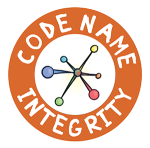Honour - Part 2 Session 2
Welcome back.
I hope you have a friend like Jonathan, but even more, I hope you will be a friend like Jonathan was.
Many stories require some historical context if we are going to understand their meaning. The story of David when he cut off the corner of King Saul's robe is not about courage, nor about damaging someone's garment. David's actions had a profound implication in terms of dishonour. Let me tell you the story:
King Saul took three thousand chosen men out of Israel and went to seek David; and he came to the sheepfold. And there was a large cave, and Saul went in to relieve himself.
Now, David, his men were sitting in the innermost parts of the cave. And the men of David said to him, "Well, here's the day the Lord has put in your hand. You can now destroy your enemy. Behold, there he is." And David arose and stealthily cut off the corner of Saul's robe. And afterwards, David's heart struck him because he had cut off the corner of a king's robe.
Now, David's men urged him to assassinate the king. But to David's credit, he refused. However, he took an action with immense negative implications: David chose to cut off the corner of King Saul's robe.
Now, in that culture, David's action was regarded as disloyalty. It bordered on treason. To cut off the corner of a king's robe was more than ruining a robe. It would be like ripping the stars off a general's uniform. By his insubordinate act, David was declaring, "I wish to expose you to shame. I cut off my relationship with you, and even sever all allegiance. I no longer honour your authority, and I hope your rule will come to a sad end."
Almost immediately after his action, David regretted what he had done, and he became overwhelmed with guilt. Why had he stood to dishonour King Saul? Later, when Saul left the cave, David called out to Saul, "My master, my king", and as Saul turned to see David, David bowed and held up a piece of the king's robe. "Oh, my father! Look at the piece that I cut from your robe. I could have killed you. But I didn't."
That day changed their relationship. David's loyalty became the key to de-escalating the hostilities between the two men. David could have claimed that Saul deserved to be dishonoured, but he chose to do the right thing when Saul was such a difficult person.
Why would David dishonour someone like Saul? Why would a child that has been abused by a parent heed the command which says, "Honour your father and mother"? Why would a business leader who has someone break a contract or perform in some substandard way treat them with honour? Whether dealing with a difficult client, an abusive parent, or an ignoble king, integrity refuses to dishonour. It does not excuse bad behaviours; rather, it initiates proper conflict resolution.
Dishonour pretends all is well, while it actively seeks to undermine. Honour is a key to successful conflict resolution. And in the conversation between David and Saul, David does not excuse Saul's repeated attempts on his life. He spoke honestly, respectfully, without condemnation to the monarch. And he listened to the king's fears. Yet, he held him responsible for his actions; his honest, direct words were the very key that turned the tumblers of the lock. And the conversation began to open the door to mutual understanding. That day, Saul and David reached an agreement that established new and appropriate boundaries.
Now, honour may not always guarantee success in conflict resolution, but it does protect character, and it guarantees peace of mind. Let me close with the words that have challenged me for a long time: "Live as people who are free, not using your freedom as a cover up for evil. But as people of integrity, honour everyone."
So here's our group question to begin to discuss:
Why is it important to honour others when you're negotiating, resolving conflicts, or doing an intervention?




